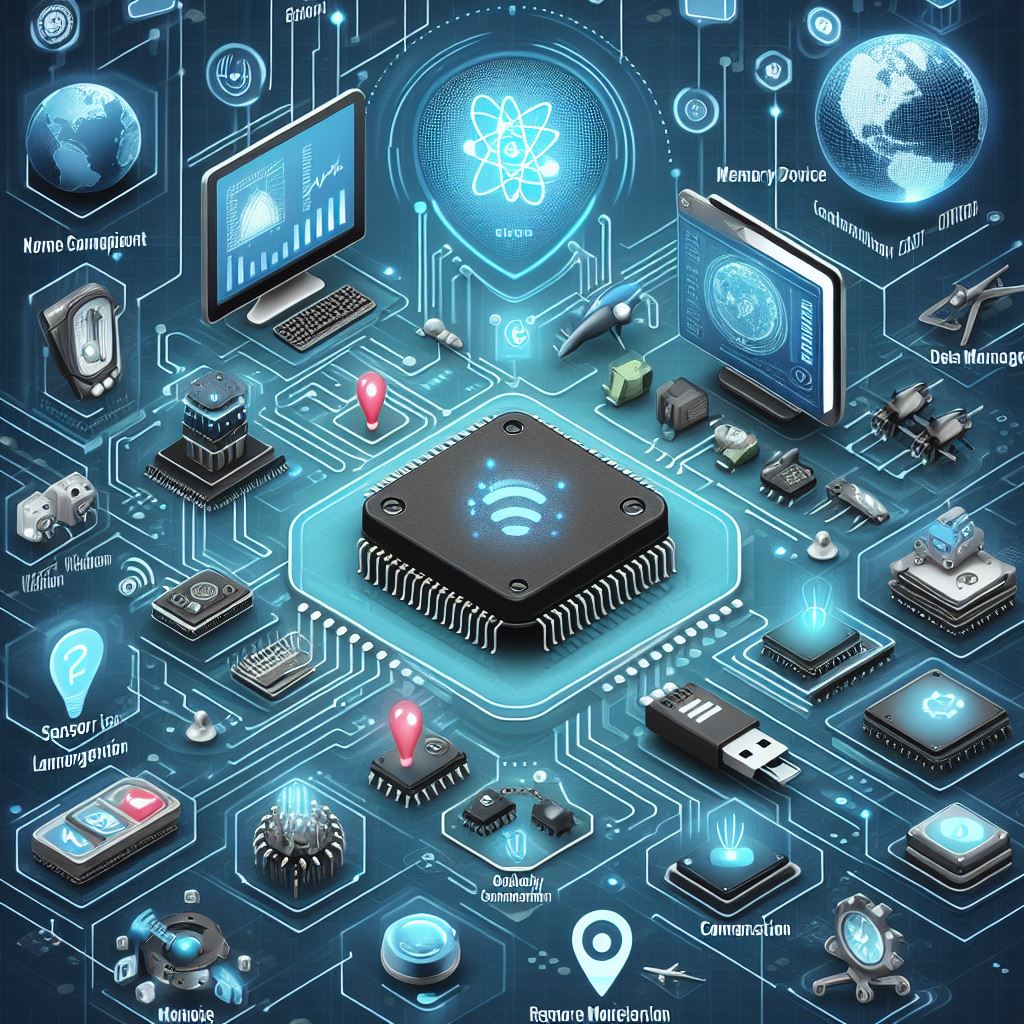The Internet of Things (IoT) is rapidly reshaping how we interact with the world around us. By connecting devices and enabling them to communicate with each other, IoT technology has the potential to revolutionize industries, enhance daily life, and improve efficiency across various sectors.
The IoT technology industry size is projected to grow from USD 945.6 billion in 2024 to USD 1,377.8 billion by 2029, registering a CAGR of 7.8% during the forecast period. The market growth is attributed to increased potential for the incorporation of IoT in electric and hybrid vehicles and accelerated IoT adoption in the healthcare sector. Furthermore, the government incentives and aids for development of IoT technologies and rise in the development of smart cities are expected to create lucrative opportunities for the market.
As we look to the future, several key trends and developments are poised to shape the trajectory of IoT technology.
1. Increased Connectivity and 5G Adoption
The Rise of 5G Networks
One of the most significant advancements influencing the future of IoT is the rollout of 5G networks. With its ability to provide faster data transmission, lower latency, and increased capacity, 5G is set to enhance the performance of IoT devices. This connectivity will facilitate real-time data exchange, enabling applications that require immediate responses, such as autonomous vehicles and smart cities.
Expanding Device Ecosystem
As connectivity improves, the number of IoT devices is expected to skyrocket. According to various industry forecasts, billions of devices will be connected to the internet in the coming years, ranging from everyday household items to industrial machinery. This expanding ecosystem will create vast amounts of data, driving new opportunities for innovation and services.
2. Enhanced Data Analytics and AI Integration
Leveraging Big Data
The proliferation of IoT devices will generate enormous volumes of data, providing organizations with valuable insights into consumer behavior, operational efficiency, and market trends. Advanced data analytics will play a crucial role in processing this information, enabling businesses to make data-driven decisions and optimize their operations.
Artificial Intelligence Synergy
The integration of artificial intelligence (AI) with IoT is a game-changer. AI algorithms can analyze data collected from IoT devices to identify patterns, predict outcomes, and automate processes. For example, smart home systems can learn user preferences and adjust settings accordingly, while predictive maintenance in manufacturing can reduce downtime by forecasting equipment failures before they occur.
3. Increased Focus on Security and Privacy
Cybersecurity Challenges
As the number of connected devices grows, so do concerns about security and privacy. IoT devices can be vulnerable to cyberattacks, leading to potential breaches of sensitive data. The future of IoT will require a strong emphasis on cybersecurity measures to protect networks and devices from threats.
Regulatory Frameworks
Governments and organizations are beginning to implement regulations to ensure the security of IoT devices and the data they collect. These frameworks will be essential for establishing standards and best practices, promoting transparency, and building consumer trust in IoT technologies.
Download PDF Brochure @
https://www.marketsandmarkets.com/pdfdownloadNew.asp?id=258239167

4. Smart Cities and Urbanization
Infrastructure Transformation
The future of IoT is closely linked to the development of smart cities. By integrating future of IoT technology into urban infrastructure, cities can enhance services such as traffic management, waste management, and public safety. For example, smart traffic lights can adapt in real-time to traffic conditions, reducing congestion and improving transportation efficiency.
Sustainable Urban Development
IoT technology can also contribute to sustainability efforts in urban areas. Smart energy grids, water management systems, and environmental monitoring tools can help cities optimize resource use and reduce their carbon footprint. As urbanization continues to rise, these solutions will be vital in creating sustainable living environments.
5. Healthcare Innovations
Remote Monitoring and Telehealth
The healthcare sector is poised for significant transformation through future of IoT technology. Remote monitoring devices can track patients’ health metrics in real-time, allowing healthcare providers to offer personalized care and intervene early when necessary. This capability not only improves patient outcomes but also reduces hospital readmissions and healthcare costs.
Smart Medical Devices
Innovations in smart medical devices, such as wearable health trackers and connected implants, will further enhance patient care. These devices can provide continuous health monitoring and transmit data to healthcare professionals, enabling proactive management of chronic conditions and facilitating more effective treatment plans.
6. Industrial IoT (IIoT) and Automation
Streamlining Operations
The Industrial Internet of Things (IIoT) is revolutionizing manufacturing and production processes. By connecting machinery and equipment, IIoT enables real-time monitoring and data analysis, leading to increased efficiency and reduced operational costs. Smart factories can automate processes, optimize supply chains, and improve overall productivity.
Predictive Maintenance
IIoT applications also include predictive maintenance, where sensors monitor equipment health and performance. By analyzing data, organizations can identify potential issues before they lead to costly breakdowns, allowing for timely maintenance and reducing downtime.
The future of IoT technology holds immense promise, with the potential to transform industries, enhance quality of life, and create more efficient systems. As connectivity improves, data analytics advances, and security measures are strengthened, IoT will continue to evolve and expand its influence across various sectors. From smart cities and healthcare innovations to industrial automation, the applications of IoT technology are virtually limitless. Embracing these advancements will not only drive economic growth but also contribute to a more connected, sustainable, and efficient world.
Key players in the IoT technology companies include
- Intel Corporation (US),
- Qualcomm (US),
- Texas Instruments Incorporated (US),
- Cisco Systems, Inc. (US),
- Hewlett Packard Enterprise (US),
- IBM (US),
- STMicroelectronics (Switzerland),
- Microsoft,
- PTC Inc. (US), and
- Amazon Web Services (US), and among others.
